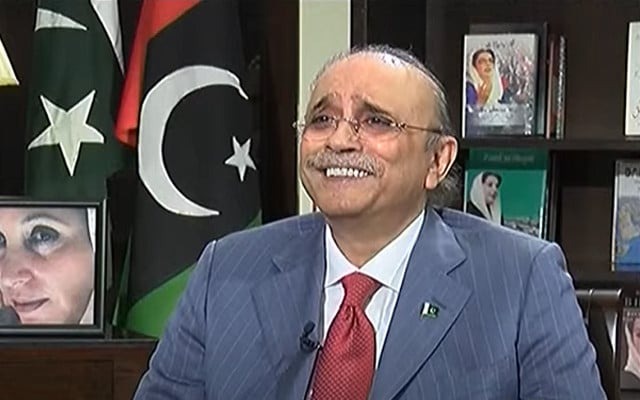In a candid interview, former president and Pakistan Peoples Party (PPP) Co-Chairman Asif Ali Zardari expressed a pragmatic stance on the possibility of delaying the upcoming general elections by eight to ten days. Zardari contends that external factors such as adverse weather conditions or security concerns, particularly in the erstwhile Federally Administered Tribal Areas (FATA), could impact the scheduled polls. Emphasizing that the inevitability of the elections remains unchanged, Zardari noted that the decision to delay ultimately rests with the Election Commission of Pakistan (ECP), as mandated by the Constitution. He dismissed concerns about a potential delay, asserting that whether held on February 8 or a few days later, the elections would proceed as planned.
In response to questions about the already announced election date and the potential for further delays, Zardari underscored the ECP’s exclusive authority in making such decisions. He emphasized that neither he nor any other individual had control over the matter, reiterating that the electoral watchdog, in adherence to constitutional provisions, holds the responsibility to announce any modifications to the election schedule. Zardari’s pragmatic approach recognizes the dynamic nature of electoral processes and the need for flexibility in the face of unforeseen circumstances.
The former president highlighted specific factors that could contribute to a potential delay, citing weather conditions and existing conflicts in the FATA region as influential variables. His remarks draw attention to the challenges posed by these factors and the necessity of considering them in the decision-making process. Zardari’s acknowledgment of the potential impact of adverse conditions on the electoral timeline reflects a nuanced understanding of the logistical complexities involved in conducting nationwide elections.
It is noteworthy that the ECP, after finalizing constituencies and consulting with President Arif Alvi under the oversight of the Supreme Court, officially announced the election date of February 8. However, recent concerns voiced by Governor K-P Ghulam Ali regarding difficulties in political activities in certain areas of K-P and Balochistan due to security issues have added a layer of complexity to the electoral landscape.
The suggestion for a potential delay is not isolated, as PPP leader Abdul Qadir Baloch had previously raised similar concerns, proposing the postponement of elections in areas facing security threats. Baloch advocated for a strategic approach, suggesting by-polls in sensitive constituencies at a later stage rather than a complete postponement. His rationale revolved around maintaining the integrity of the democratic process while addressing security challenges in specific regions.
The evolving discourse around the feasibility of holding elections amidst security concerns is not confined to PPP circles. JUI-F chief Maulana Fazlur Rehman also recently expressed doubts about the viability of conducting elections in what he termed a “deteriorating” security climate.
As the nation grapples with these considerations, Zardari’s pragmatic viewpoint offers a balanced perspective, recognizing the need for flexibility while reiterating the unwavering commitment to democratic processes. The nuanced approach to potential delays showcases an understanding of the complex dynamics surrounding electoral logistics and security challenges.


